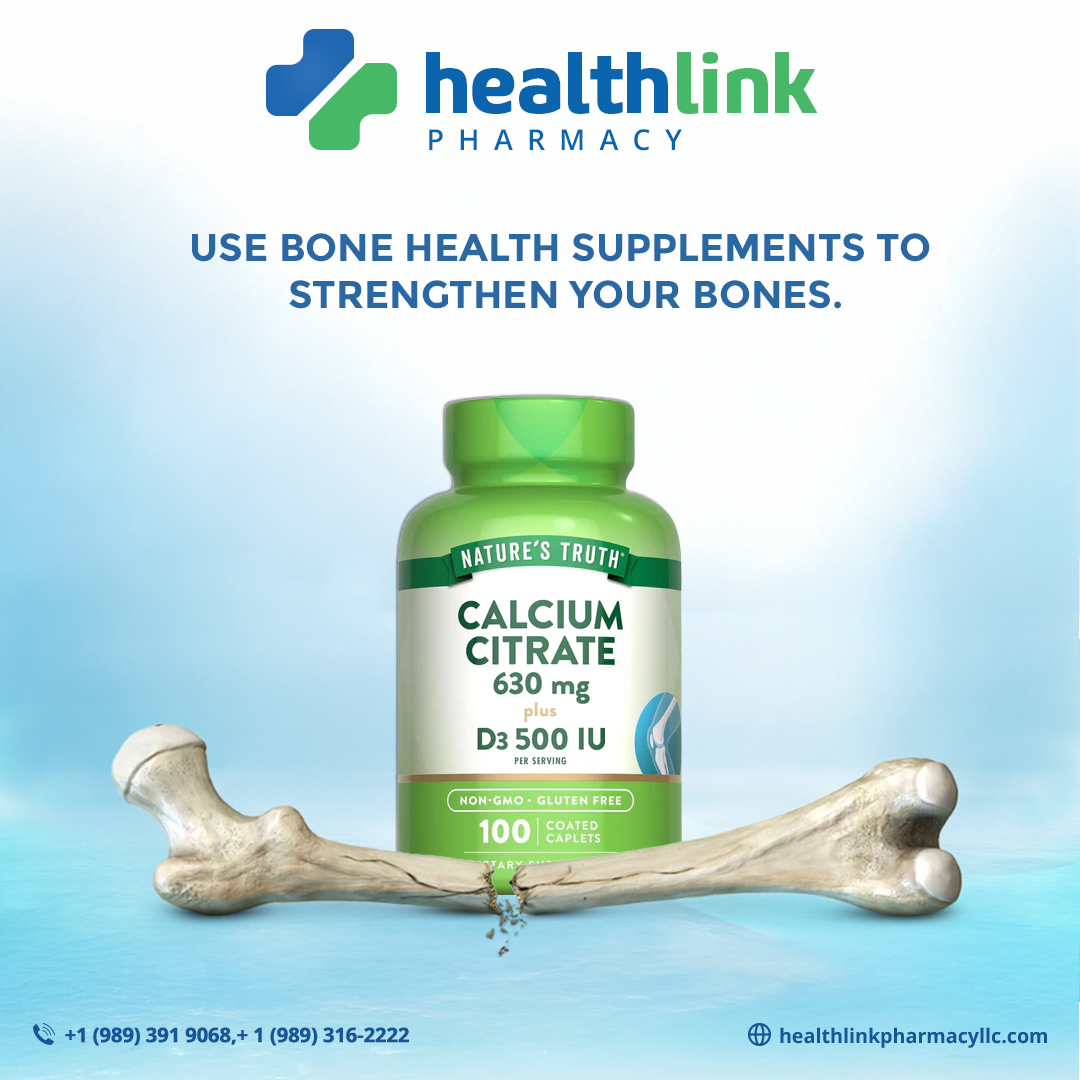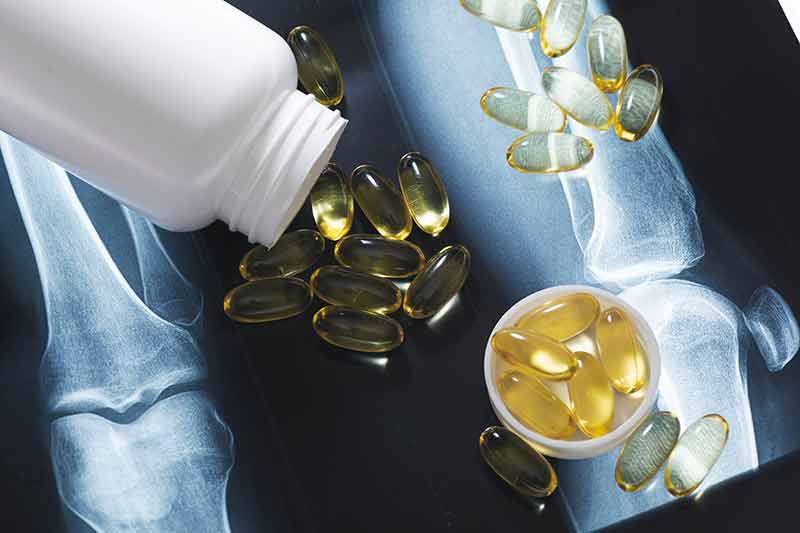Bone health is critical to overall well-being, yet it’s often overlooked until problems like osteoporosis or fractures arise. Proper supplementation can help you maintain robust bone structure and strength throughout your life. Whether you’re looking to prevent issues or support existing concerns, bone health supplements are an essential part of the equation.
Understanding Bone Health
Bone health is not just about avoiding fractures. It’s about maintaining a balance of mineral density, bone strength, and structural integrity. Your bones are dynamic; they constantly remodel themselves, with cells called osteoclasts breaking down old bone tissue while osteoblasts build new ones. The nutrients you consume—especially through supplements—play a pivotal role in this process.
The Role of Nutrition in Bone Health
Calcium, magnesium, vitamin D, and other nutrients are indispensable for maintaining bone density. When dietary intake falls short, supplementation becomes necessary. Furthermore, bone health is about more than just minerals—hormonal balance, physical activity, and overall nutrition are key components.
Calcium Supplements: The Cornerstone of Bone Health
Calcium is synonymous with strong bones, and for good reason. Your bones store about 99% of the body’s calcium. When dietary intake is insufficient, your body leaches calcium from bones, weakening their structure over time.
Why Calcium is Essential
- Supports bone density
- Prevents osteoporosis
- Aids muscle function and nerve signaling
Best Calcium Supplements
- Calcium Carbonate: Best taken with meals for improved absorption.
- Calcium Citrate: A gentler option, ideal for people with low stomach acid or digestive issues.

Both forms are effective, but ensure they are taken in combination with vitamin D for optimal absorption.
Vitamin D: The Sunshine Vitamin
Without vitamin D, calcium absorption is significantly reduced, making it a crucial partner for any bone health supplement regimen.
Benefits of Vitamin D for Bone Health
- Enhances calcium absorption
- Prevents rickets and osteomalacia
- Improves muscle function, reducing the risk of falls
Best Vitamin D Sources and Supplements
- Vitamin D3 (Cholecalciferol): The most bioavailable form of vitamin D.
- Natural sources: Fatty fish, eggs, and fortified milk.
Magnesium: The Unsung Hero of Bone Strength
Magnesium plays a significant role in converting vitamin D into its active form and directly influences bone density.
Benefits of Magnesium
- Activates enzymes for bone-building
- Regulates calcium transport in cells
- Supports hormonal pathways for bone health
Recommended Magnesium Supplements
- Magnesium Glycinate: Gentle on the stomach and highly bioavailable.
- Magnesium Citrate: Ideal for people with constipation issues, as it supports bowel movements.
Collagen: A Building Block for Bone Matrix
Collagen is not just for skin and joints; it forms the structural foundation of bones. Adding collagen peptides to your routine can significantly improve bone resilience.
Collagen Benefits for Bones
- Strengthens the bone matrix
- Reduces joint pain
- Promotes flexibility and durability
Top Collagen Supplements
Look for hydrolyzed collagen peptides, which are easier for the body to absorb.
K2 and Its Role in Bone Health
Vitamin K2 works synergistically with calcium and vitamin D to enhance bone health. It directs calcium to the bones and away from arteries.
Benefits of Vitamin K2
- Prevents arterial calcification
- Increases bone mineral density
- Reduces fracture risk
Best Sources and Supplements
- Fermented foods like natto
- K2 supplements in the form of MK-7
Omega-3 Fatty Acids for Bone Inflammation
Omega-3 fatty acids are anti-inflammatory agents that indirectly support bone health by reducing bone resorption.
Benefits
- Reduces inflammation in bone cells
- Promotes bone formation
- Supports joint health
Omega-3 Sources
- Fish oil capsules
- Algal oil for vegetarians
Trace Minerals for Bone Health
Trace minerals like zinc, copper, and manganese are often overlooked but are essential for enzymatic reactions and bone remodeling.
Benefits
- Zinc: Supports bone tissue regeneration
- Copper: Aids in collagen synthesis
- Manganese: Essential for bone mineralization
Consider multivitamin formulations tailored for bone health.
Bone Health Supplements for Different Life Stages
Children
- Multivitamins with calcium, magnesium, and vitamin D
- Collagen for growth and development
Adults
- Higher doses of calcium and vitamin D
- K2 to prevent bone density loss
Seniors
- Calcium citrate for easy absorption
- Vitamin D3 and K2 to combat osteoporosis
Lifestyle Tips to Complement Bone Health Supplements
- Exercise Regularly: Weight-bearing exercises like walking and resistance training boost bone density.
- Eat a Balanced Diet: Include leafy greens, nuts, seeds, and dairy.
- Avoid Smoking and Excess Alcohol: These habits weaken bones over time.
FAQs
What are the best bone health supplements for osteoporosis?
Calcium, vitamin D3, and K2 are highly recommended for osteoporosis prevention and management. Adding magnesium and collagen peptides can enhance results.
Can supplements replace a healthy diet for bone health?
No, supplements are meant to complement a balanced diet, not replace it. Whole foods provide additional nutrients and cofactors essential for bone health.
How do I know if I need bone health supplements?
Signs include frequent fractures, joint pain, or low bone density in scans. Always consult with a healthcare provider before starting supplements.
Are there vegan options for bone health supplements?
Yes, options like plant-based calcium, algal oil (omega-3), and vegan D3 are available.
What is the ideal dosage for calcium supplements?
Adults generally require 1,000-1,200 mg daily. Split doses throughout the day for better absorption.
Can I take all bone health supplements together?
While many can be taken together, consult your doctor to avoid interactions or overdosing.
Conclusion
Your bones deserve care and attention at every stage of life. With the right combination of bone health supplements, a nutritious diet, and an active lifestyle, you can ensure they remain strong and resilient. Whether it’s calcium, vitamin D, or lesser-known nutrients like magnesium and K2, incorporating these essentials into your routine can make a significant difference. Start prioritizing your bone health today for a stronger, healthier tomorrow.

